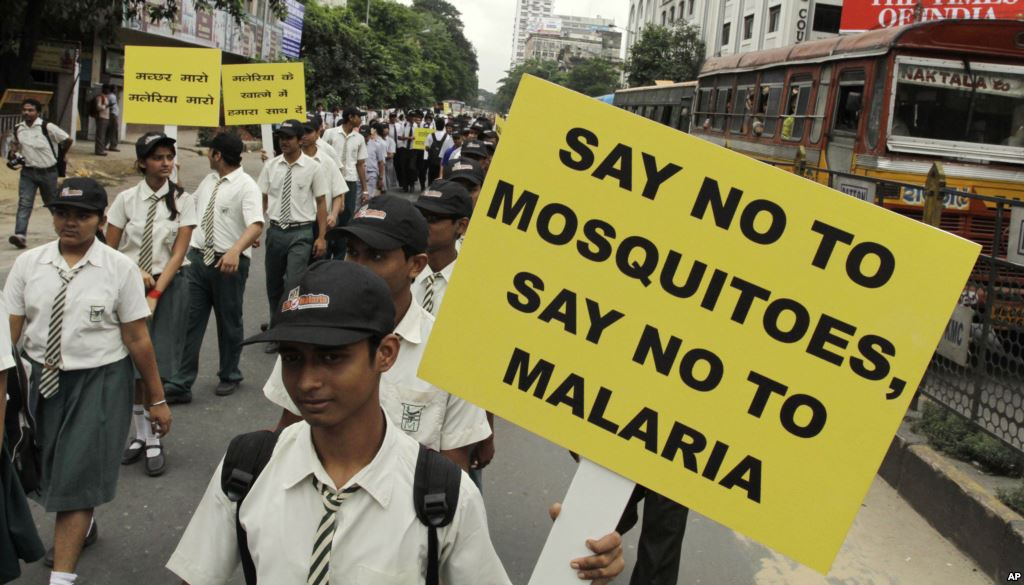For a disease that can be a scary epidemic, some endemic action that stays more stubborn than the vector, is, sometimes, the only answer. It is a good sign then to hear that the National Institute for Research in Tribal Health (NIRTH)/ICMR, Govt of MP and FDEC-India (Foundation for Disease Elimination and Control of India) are jointly moving forward in accomplishing the goals of malaria elimination. They are making many interventions lately in Mandla district in Madhya Pradesh and trying to prevent re-introduction by use of vector control indoor residual spray and/or use of insecticide-treated long-lasting bednets (LLINs) and case management (rapid on-the-spot diagnosis and prompt treatment) as per national and/or WHO norms of malaria elimination efforts. Eradicating malaria can be a tough job.
FDEC-India – which is also responsible for implementation of the Project in collaboration with NIRTH/ICMR, Govt of MP and all appropriate stakeholders – will execute the malaria elimination project over a span of 3 to 5 years covering over 1,200 villages in Mandla district.
These teams and partners have just announced a notable milestone with Phase 1 roll-out of Malaria demonstration project in Mandla. This Phase, as explained in a press update, will focus on community awareness and education programs among the community residents in Mandla.
Here, FDEC also intends to begin intense case & surveillance-based malaria control using RDTs, ACTs, LLIN bednets and insecticide spray. Over the next two years, it will focus on sensitizing local communities about detection and treatment requirements to keep them malaria free while continuing intense surveillance-based malaria control and community-based awareness & education programs. The Foundation will also undertake measures to prevent re-introduction of malaria into Mandla district from outside areas and mobilize communities to ‘look’ for introduction of new cases by travelers from neighboring districts.
According to WHO estimates, India contributes about 70% of malaria cases in South East Asia Regional countries. India has the highest number of deaths outside the African continent, with approximately 181.3 million at high risk and 997.4 million people at low and high risk. Malaria has been shown to impede development, saving and investment, worker productivity, and per-capita gross domestic product. Malaria has also been shown to promote school and workplace absenteeism.
“Malaria elimination has been recognized as a global priority and a target of 2030 has been established for elimination. The Public-Private-Partnership between FDEC-India, ICMR and Govt. of MP is an important collaboration to meet health challenges and I hope other organizations will join FDEC-India in this and future health initiatives” observed Dr. S.Y. Quraishi, Chairman, FDEC-India
Dr. Neeru Singh, Director, National Institute for Research in Tribal Health, Indian Council of Medical Research, Department of Health Research, Ministry of Health and Family Welfare added, “Our goal is to provide better intervention in hard-to-reach areas to eliminate malaria from underprivileged communities residing in 1233 villages of district Mandla. We have started from the remotest part to serve the underserved community. For malaria elimination, the participation of individuals and community leader is essential.”
 The Malaria Free India initiative was announced in 2016 as part of the broader MOU signed between ICMR and Sun Pharma for development of translational health sciences and disease control & elimination. ICMR’s National Institute for Research in Tribal Health is one of its permanent national institutes situated in Jabalpur, Madhya Pradesh with the mandate to plan, conduct and coordinate research on specific health problems and health needs of the tribals. The Institute is also WHO Collaborative Centre for the Health of the Indigenous populations.
The Malaria Free India initiative was announced in 2016 as part of the broader MOU signed between ICMR and Sun Pharma for development of translational health sciences and disease control & elimination. ICMR’s National Institute for Research in Tribal Health is one of its permanent national institutes situated in Jabalpur, Madhya Pradesh with the mandate to plan, conduct and coordinate research on specific health problems and health needs of the tribals. The Institute is also WHO Collaborative Centre for the Health of the Indigenous populations.
Notably, Government of India has asserted strong regional leadership on the challenge of Malaria, in helping to guide the region towards endorsement of the Asia Pacific Leaders Malaria Alliance (hereinafter referred to as “APLMA”) Roadmap in November 2015. The Ministry of Health and Family Welfare launched “The National Framework for Malaria Elimination in India” and set the target of elimination of malaria in India as 2030.
Hopefully, the efforts and vision will spread quite infectiously.
– Team Sustainability












Recent Comments